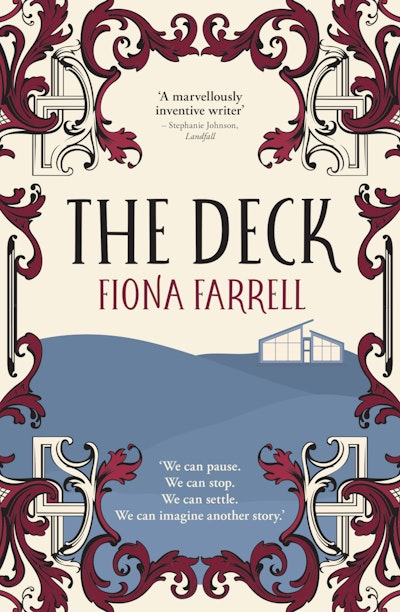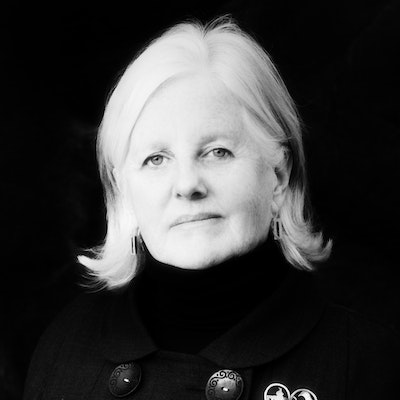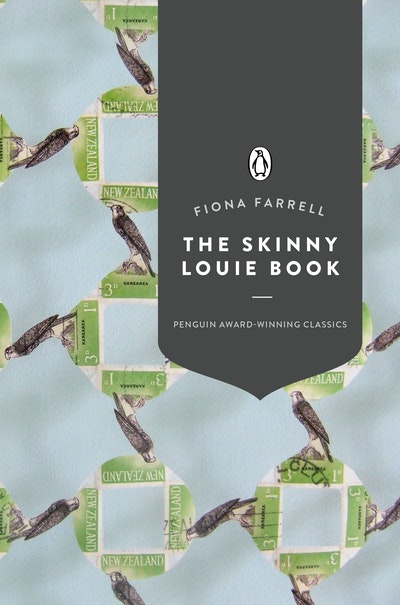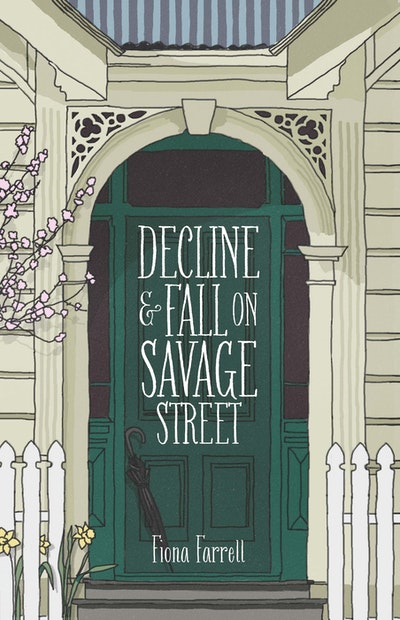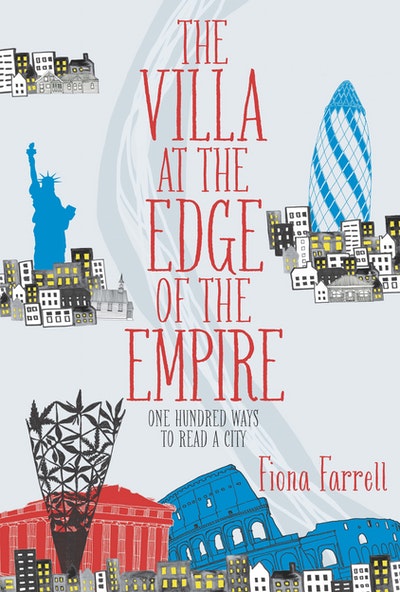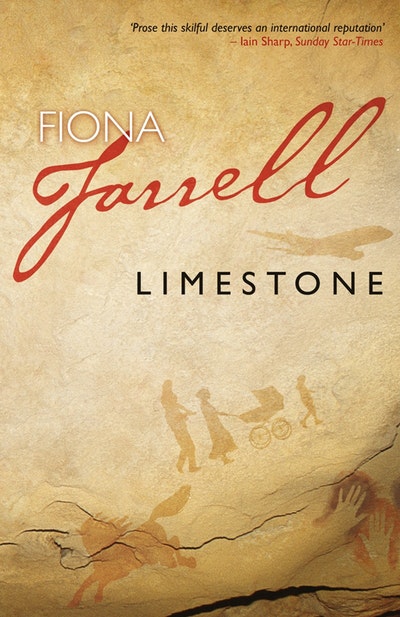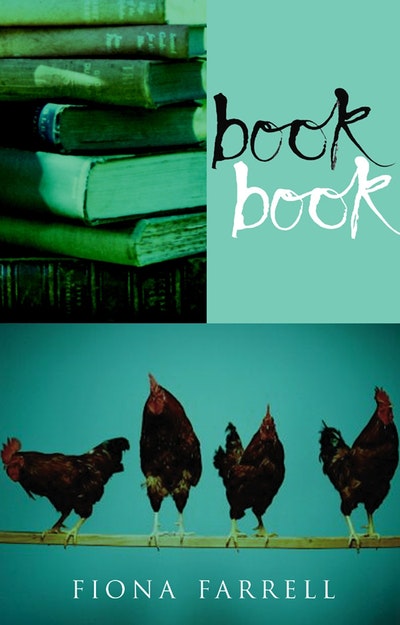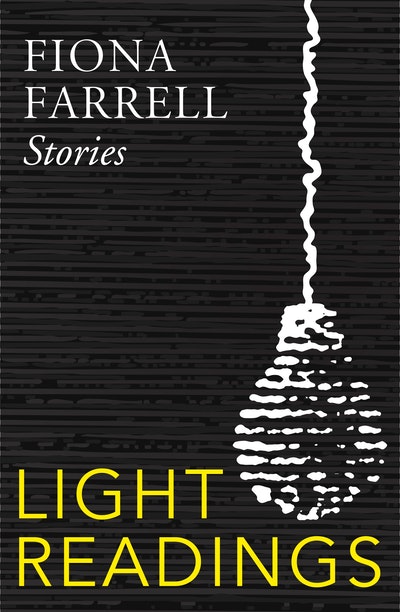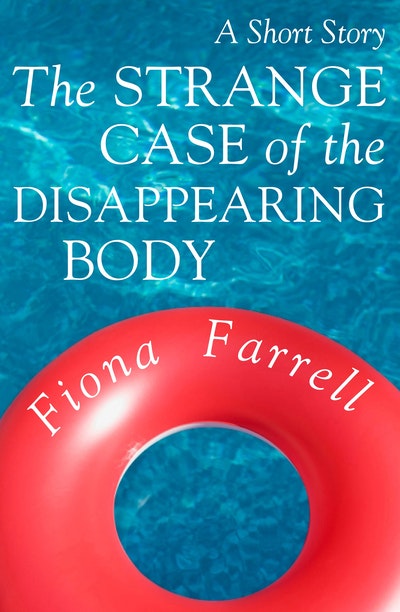- Published: 18 April 2023
- ISBN: 9781776950003
- Imprint: RHNZ Vintage
- Format: Trade Paperback
- Pages: 304
- RRP: $37.00
The Deck
- Published: 18 April 2023
- ISBN: 9781776950003
- Imprint: RHNZ Vintage
- Format: Trade Paperback
- Pages: 304
- RRP: $37.00
One of the things about Fiona is that she is absolutely impossible to pigeonhole and she's one of those truly multi-talented writers . . . I think it is a work of absolute genius and a reflection on our times . . . it encapsulates our lives.
Lynn Freeman, Radio NZ
The evocative nature writing, the nuanced points of view, and the sharpness and clarity of the non-fiction wraparound sing the The Deck to vivid life. Flashes of wit and humour sparkle through the text. . . . The Deck is a modern masterpiece of invention and curated facts by a writer at the height of her powers, a luminous intelligence and compassion shining forth from every page.
Sue Reidy, Aotearoa New Zealand Review of Books
It’s a resonant, multitextured story about a group of friends locked down during a pandemic who keep one another entertained by telling tales. In this, The Deck offers readers and writers a timely and vivid reminder of why we need to confront our contemporary challenges, the better to process and understand them, and therein heal. On one level, this is an eminently relatable read. . . . To this relatability, Farrell adds a richly layered subtext. She extensively borrows her motifs from Giovanni Boccaccio’s 14th Century epic, The Decameron. Consequently, Boccaccio’s focus upon wealthy vicenarians fleeing Florence during the plague in favour of a luxurious villa is transposed to middle-class Aotearoa. The Deck also pays homage to The Decameron’s theme of artistic diversion progressed by its characters passing the time in storytelling, singing and communing with nature. Farrell engages with these matters both literally and figuratively. The characters’ relationships with the environment, for instance, is evident in both an evocation of the surroundings they escape to, and in their confessions of their pasts. In the latter too, as with Boccaccio’s, Farrell’s characters spin such yarns to entertain their companions and, in doing so, begin to blur the lines between real life and fiction, autobiography and invention. Other thematic elements ensue. For the symbolism prevalent in The Decameron becomes one deployed in The Deck too. The former asks its reader what is the relationship between art and life, and how can one (narrative) help us overcome the most perilous aspects of the other (existence)? In The Deck, Farrell contemporises and localises these provocations. The unreliability of self and survival; the interconnectedness between reality and creativity; the construction of our beings versus the composition of story: these complexities are confronted from the first pages of the book. . . . A deeply faceted and deeply-mulled literary novel, The Deck is a relevant, expansive read.
Siobhan Harvey, Kete
Now, in her first novel for six years, Fiona Farrell has made her own assured and graceful contribution to pandemic lit. The Deck is a thoughtful, poignant response to our recent experience. Using structure to contemplate chaos, Farrell has found a beautifully sophisticated way to entertain us with the unthinkable. . . . Farrell vividly evokes the sea, the coast and the bush. There's a powerful sense of sadness and regret, for damage done, for the danger we've created, for our helplessness and vulnerability. . . . The Deck, with its oddball characters and gentle tales, is perhaps the most interesting and satisfying local response to the pandemic we've seen so far.
Charlotte Grimshaw, NZ Listener
This is so much more than a pandemic novel. It tussles with ideas about how to live in a world approaching its final act, and questions the role fiction has to play in such a time. Local author Fiona Farrell's conclusions are profound and hopeful, and make this a provocative but deeply satisfying autumn read.
Bel Monypenny, Weekend Press
Two days after I started reading The Deck, Fiona Farrell's capacious, inventive, sideways-leaping novel about a fictional, haemorrhagic pandemic, Covid hit my household for the first time. It was a bleak, uncomfortable irony. . . . Farrell's work reinforces that we need fiction to help us know ourselves as members of a variegated culture; in the deepest sense to help us understand our impulses, beliefs, choices, drives, triggers, losses, capacities, flaws, secrets, struggles and triumphs. . . . The episodic nature of the novel, where each character recounts anecdotes from their own pasts, is an artistically bold move for the writer to make. Yet it works. It becomes a celebration of humanity in all its possibility; an illumination of the bright, giddy, unpredictable, diverse human carnival with all its terrors and delights: a reminder, in fact, of all a pandemic threatens.
Emma Neale, Otago Daily Times
I love novels that you fall into and languish, trusting that each word will be perfectly placed, that each action will be either consistent or surprising, that each character will be rounded and real. Fiona Farrell’s sumptuously written, impeccably paced and frankly terrifying new novel, The Deck, exactly fits.
Paddy Richardson, newsroom
The stories that are told . . . cover a plethora of genres, confirming that this is not just a book about stories, but also about how they work, even whether they work.
Paul Little, North & South
Fiona Farrell is one of our foremost writers, accomplished in fiction, drama, poetry and essay, and as a scholar. All of these talents are necessarily employed in The Deck, her most challenging work yet, both for her and for readers. The Deck is a powerful and layered book, a cross-genre piece bringing together the past and the present, fact and fiction, poetry and statistics, escape and confrontation. Farrell never writes the same book twice and this is further proof of that. Even the title itself has a teasing multiplicity of meaning. . . . As is to be expected, her language is impressive in its originality and in its power. Descriptions of settings are both sharply imagistic and telling in their symbolism . . . Few writers would attempt a work of such apocalyptic ramification, archaic reference and genre-juggling, but Farrell’s ambition has succeeded in creating a memorable, relevant novel for our times. . . . The Deck, however, is more than a reprise of Boccaccio’s Decameron, more than a commentary on the onslaught of diseases such as Covid-19; it is also a reflection on the place of literature and culture generally in a world facing so many onslaughts. . . . The Deck is both a presentation of this question and a thoughtful, engaging attempt to answer it. The author has remarkable insight into human character and a mastery of language that allows that insight full expression. The best writing raises issues and emotions around our place in the world that remain with the reader long after the book has been closed, and that is the case with The Deck.Fiona Farrell understands and reminds us that much of life is interpreted through narratives of one sort or another
Owen Marshall, Landfall
Such nested story-telling is, of course, a tradition that stretches back to the Arabian Nights and beyond. What makes The Deck so memorable is the way Farrell situates it firmly within its factual and contextual context. The book opens with "The Frame", in which the author sits before her typewriter planning her novel, and questioning her ability to translate her ideas "from the crevices of my crumpled brain to the crevices of yours". It closes with "The Author's Conclusion" in which she sums up the events that have taken place during its writing, the proliferation rise of "alternative facts", and her uncertainty about the future. In its structural and thematic mirroring of The Decameron, The Deck reminds us that what seems apocalyptic today is part of a centuries-old pattern.
Cushla McKinney, Otago Daily Times
Fiona Farrell’s writing has enthralled and inspired me from the moment I fell into the freshness and delight of The Skinny Louise Book in 1992. Since then I have devoured her poetry, her novels and her nonfiction. Her writing prompted by the Christchurch earthquakes was humane, lyrical, layered and so utterly necessary. When I think of Fiona’s writing, I am reminded of the power of books, regardless of style or genre, to move us, nourish us, to challenge without ever losing touch with both heart and mind. . . . For me, Fiona nails the uncertainty, the unreality and complexity of the [Covid] situation, the daily reassessments and difficult choices, the willingness to work together for the good of the whole, the unwillingness by some to relinquish individual freedoms. The reevaluation of what mattered. . . . I love the novel’s ending. I am transported back to the endings of post-war Italian neorealist films. I am there watching (think The Bicycle Thief and Rome, Open City) as the characters and a group of children walk down the road, down the road to the final frame, to the word HOPE, and even though I am wrung out and smashed to smithereens by planetary greed, I am strengthened by a collective impulse to write – as resistance, as solace, as illumination. There are multiple versions of who we are and there are multiple versions of who we might be. We need novels. We need stories. We need imagination and we need the mirror held up. Fiona Farrell’s remarkable new novel, The Deck has made a difference to me.
Paula Green, The Poetry Shelf
